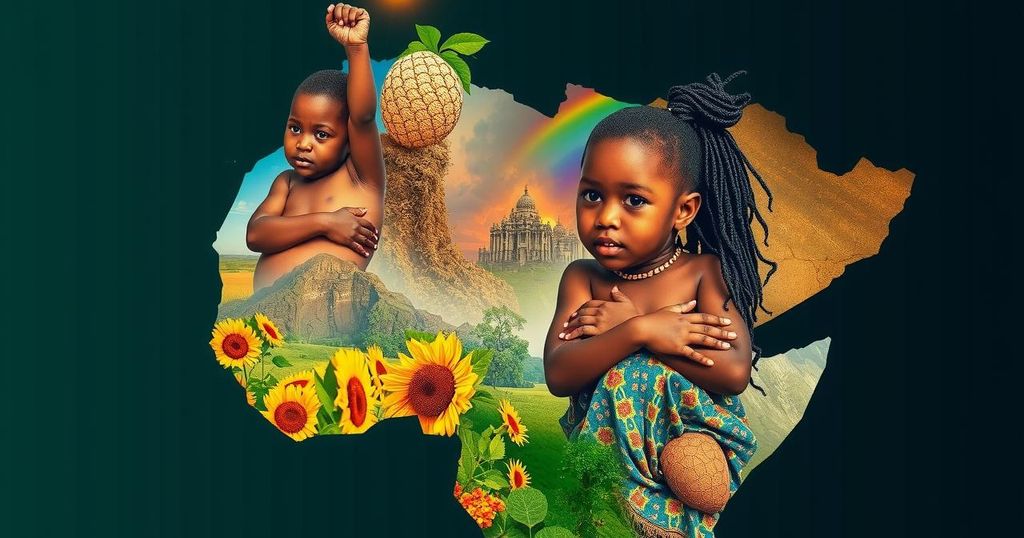Children in sub-Saharan Africa are among the most affected by climate change but receive minimal funding. A UNICEF study predicts that by the 2050s, the impacts of climate hazards will escalate, with urgent calls for increased investment and action to address children’s needs amidst climate crises. Over 40 million children have missed education due to extreme heat this year, further compounding their vulnerability.
Children in sub-Saharan Africa are at heightened risk from the severe impacts of climate change, yet they receive minimal support from vital climate financing needed to mitigate these challenges. A recent UNICEF study, “The State of the World’s Children 2024: The Future of Childhood in a Changing World,” highlights that climate hazards are set to exacerbate vulnerabilities among African children, who struggle with insufficient access to resilient infrastructure, healthcare, and education. The ongoing digital divide only compounds their challenges, limiting their educational and employment prospects.
UNICEF’s findings indicate that virtually all children in the 49 assessed African nations face high to extreme risks associated with climate change effects, such as rising temperatures and flooding. Alarmingly, only a mere 3 percent of global climate funding is allocated to children, prompting calls for greater investment. Catherine Russell, UNICEF’s executive director, emphasized that the choices made by policymakers today will fundamentally determine the future that children inherit.
Additionally, during a recent high-level discussion at the COP29 climate conference, it was stated that over 40 million children across Africa and Asia have been deprived of education in 2023 due to extreme heat. UNICEF advocates for concrete commitments concerning children in national climate action plans, highlighting that less than half of these plans currently address the unique needs of youth. In conjunction with World Children’s Day, a coalition of children from seven southern African countries urged for an educational reform that aligns with the realities of the modern world.
The impact of climate change in sub-Saharan Africa is dire for children, who are particularly vulnerable due to existing socio-economic challenges. Limited access to essential resources, like clean water, healthcare, and education, exacerbates their situation. Additionally, the digital divide restricts their ability to develop necessary skills for the future, making it critical to provide adequate support and funding aimed specifically at children’s needs in the context of climate change. Recent reports underscore the urgent call for world leaders to address these disparities and take decisive action.
In summary, the escalating climate crisis poses a severe threat to children in sub-Saharan Africa, highlighting urgent needs for targeted climate action and funding. Without adequate resources and interventions directed towards young populations, future generations may face catastrophic outcomes. The recent UNICEF report and the voices of children underscored the necessity for commitments that prioritize their unique challenges amidst climate change. Leaders must act decisively to protect the future of these vulnerable individuals.
Original Source: www.chinadaily.com.cn






